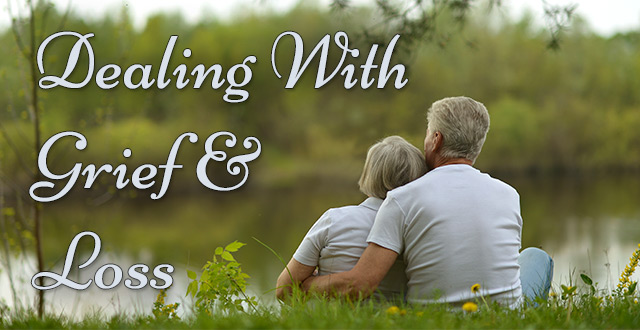Grief can be a life-changing experience if it comes upon you unexpectedly. You may not truly understand how devastating the effects of grief can be until you are in the middle of a turbulent time in your life, turning in the tornado of anger and despair. Although grief can manifest in many different ways there are some ways to head off the ill effects of grief if you are prepared for what you may experience, and understand how to deal with it in a healthy manner.
Grief can follow loss of a familiar lifestyle or relationship you once had due to death, separation or illness. Everyone has unique grieving style, although the most recognizable remain denial, anger, bargaining, depression, and acceptance; identified in Elisabeth Kubler-Ross’s On Death & Dying in 1969. Commonly called the “five stages of grief,” the Grief Cycle is often experienced by those going through the illness, death or change directly. But the people close to the transition also have many other emotions and symptoms to contend with.
The most common expressions of grief are of course crying, despair, fatigue, detachment and a depressed attitude. But you should take care to recognize when appropriate grief responses begin to linger and manifest dangerous, prolonged unhealthy behaviors. Short-term situational depression may become massive clinical depression. An unkempt home can become toxic and hazardously hoarded. Emotional eating may balloon into a medical emergency.
Confusion, anger and volatile emotions leave those who have not resolved their grief feeling lost and alone. But there are things you can do to help you in the process of grieving, and help you do so in a healthy way:
1. Self-Help and Support
If you just want to be alone with your thoughts you can always get in some good reading. Researching articles and excerpts from books on grief can help you determine if your feelings are on track with typical grieving behaviors or taking a detour into dangerous territory. If you’re feeling more social and prefer some human contact support groups can provide some much needed comfort. Others who are also experiencing loss, or have found their way back to happiness through the grieving process can be a tremendous help to your own emotional health.
2. Focus on Family
Spending time with family, friends and neighbors can be a needed relief from the feelings of loss and loneliness. Having an intimate group of supporters surrounding and embracing you can remind you of all you still have and get you back to keeping those traditions you may feel have been disrupted.
3. Keeping the Memory Alive
Memorializing your loved one can range from symbolic to concrete. You may celebrate their life or your relationship on a special day every year, write a poem or song for or about them, or dedicate a piece of art, garden or building in their honor. You may even start a foundation in their memory. Art and hobbies of all kinds are helpful in this period, whether you use these outlets to express specific feelings about their loss or otherwise. Creativity inspires joy.
4. Helping Others
If you’ve experienced grief due to illness or death, becoming active in the fight for causes working against the affliction that created the loss can help you regain a sense of power and purpose. Providing education on the causes of your loss to those who are experiencing similar situations and helping them cope with their own losses can be invaluable to both lives. Becoming knowledgeable in your specific grief circumstance and then mentoring others who’ve lost is a great way to give back and move forward while inspiring change.
5. Finding Faith
Seeking comfort and answers from exploring your faith or turning to a trusted Higher Power is an excellent way to connect with a supportive and compassionate community who can help you through you ordeal. Uplifting texts and encouraging gestures from others who share your faith can help you process through your feelings, stay hopeful in despair, and work through the pain to find closure and happiness.
Grief is a journey but does not have to be a long, hard, lonely road. There is help out there, and more support than you can imagine. Take advantage of the opportunity to connect with others who can help you through the darkness and find your way back to life.

